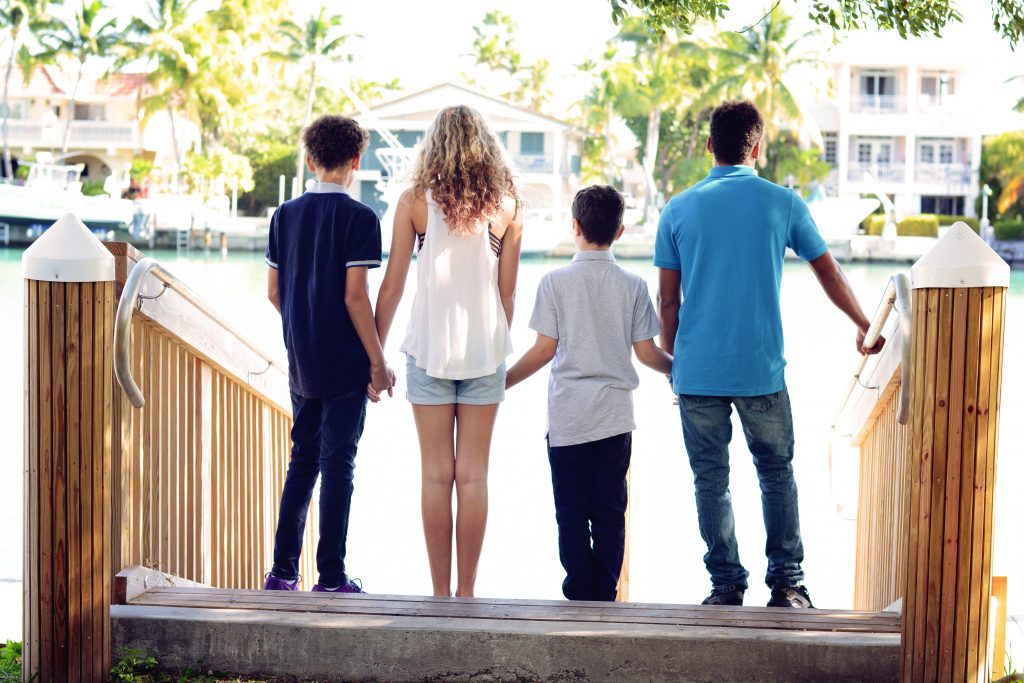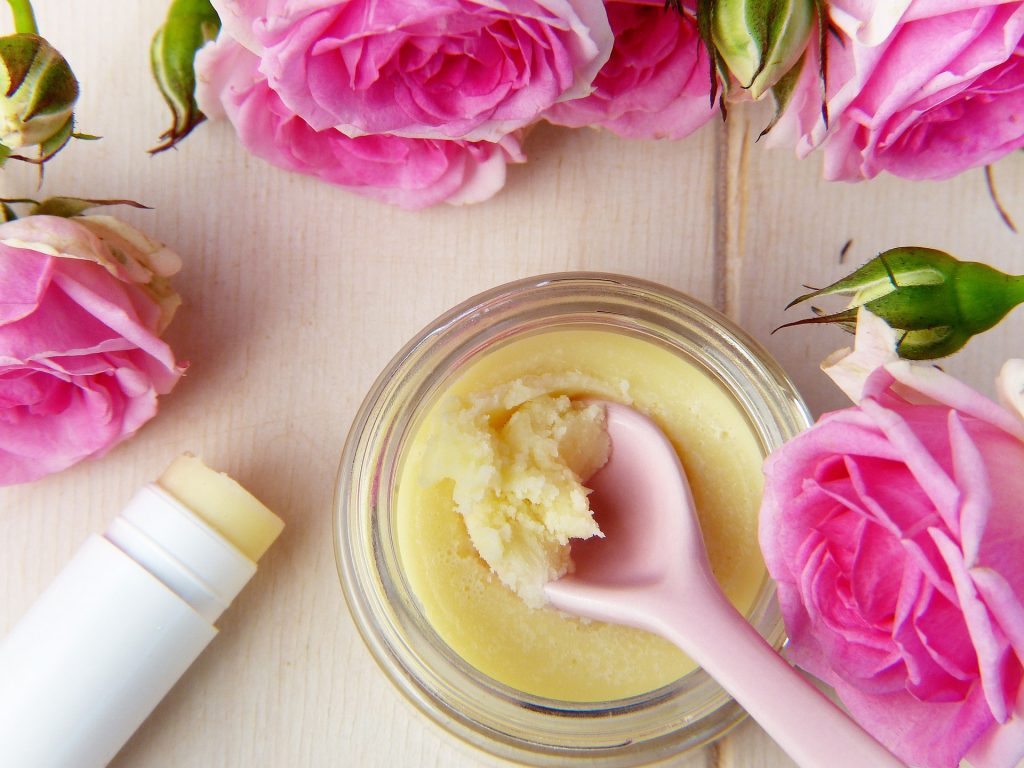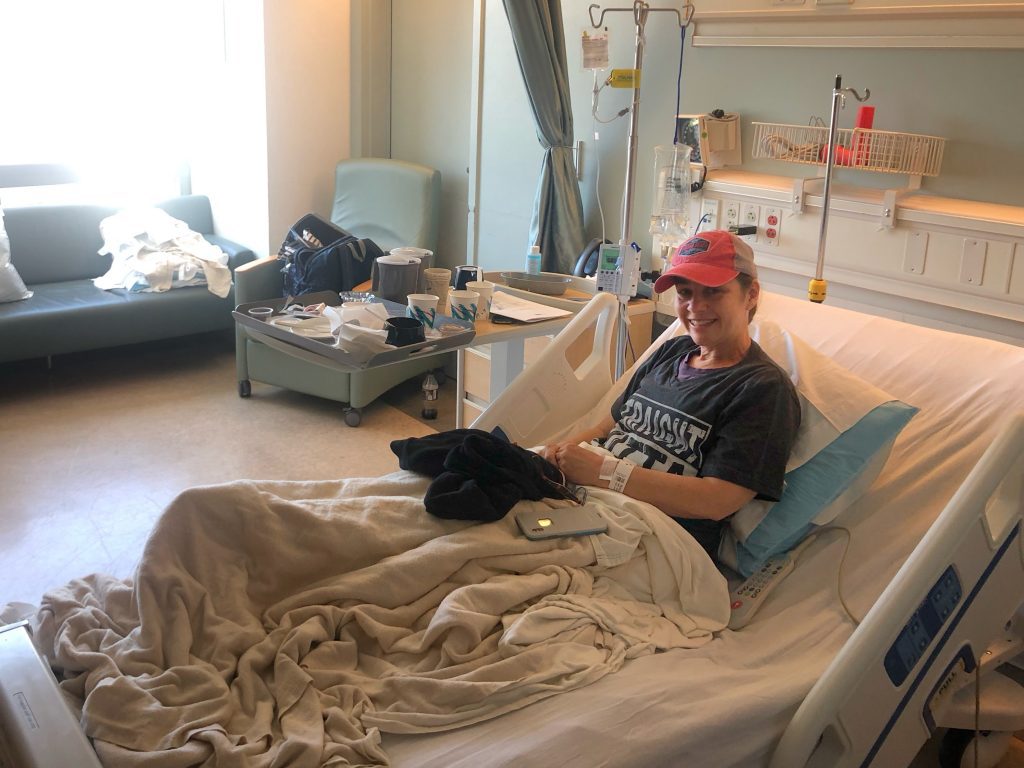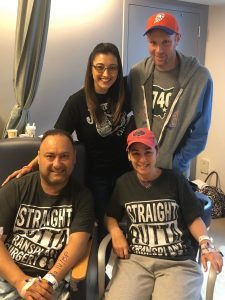by admin | Jul 10, 2019 | Blog

Fortunately, my daughter finally learned to hold her own sippy cup.
Unfortunately, my milk dried up.
Fortunately, my son started to walk then run.
Unfortunately, now he runs away from me every chance he gets.
Fortunately, I’m soaking up my son snuggling quietly on my shoulder.
Unfortunately, it’s only because he’s teething and miserable.
Fortunately, my daughter started preschool, and I now have a minute to myself.
Unfortunately, I’m overwhelmed with what to do in those hours.
Fortunately, my son started Kindergarten without looking back.
Unfortunately, I was hysterical in the parking lot. He looked so small.
Fortunately, my daughter made friends in the playground.
Unfortunately, she wasn’t invited to the birthday party.
Fortunately, my kids are spending the night over at their grandparents’ house.
Unfortunately, I’m too tired to go out for date night, and I just want to sleep.
Fortunately, after I dreamed of it for years, my son went off to camp for two weeks.
Unfortunately, I can’t do anything but think of what he might be doing and if he’s happy.
Fortunately, my daughter made the sports team. Hooray!
Unfortunately, now we can’t go on family vacation without letting someone down.
Fortunately, my kids learned to make pancakes and tacos and bake cookies.
Unfortunately, I’m not needed in the kitchen anymore.
Fortunately, my daughter received her driving permit, and she’s exhilarated.
Unfortunately, soon enough she will be out more than she’s in.
Fortunately, my son can play for hours on his own in the garage making robots and gadgets.
Unfortunately, I’m now thinking I should be more careful what I wish for.
Fortunately, my kids are looking into college and toward their bright futures. I’m so proud.
Unfortunately, I’ve just put myself out of a job. They are gone, and it’s over.
Fortunately, they know I love them and now adventure awaits us all.
by admin | Jun 9, 2019 | Blog

It would be difficult to find a human being out there who wouldn’t support offering modern mothers an opportunity for a little self-care. There’s nothing wrong with a mani-pedi or a mid-afternoon coffee with friends. I can’t quarrel with a girls’ weekend away or a sacred nightly bubbly bath with a candle and some calming music. All too often mothers sacrifice their own wellbeing to devote all of their energy to their families and work. However, when self-care becomes a hashtag and an achievement sport won by those with the most organic, product-filled perfectly-styled Instagram feed I’ve got a big issue.
You can thank Gwyneth Paltrow, founder of Goop, who led the way for massive content marketing to moms. She’s a master even depicting divorce as an act of positive self-growth performed in timeless $225 jeans. The idea that moms in particular are deserving of attention and care is very attractive. But most busy parents don’t have time or money for cleanses and jade eggs and shilajit smoothies. As it turns out, the version of “self-care” espoused by many a celebrity mom and Instagram star might not be helping parents. In fact, it’s likely hurting.
We live in a commercial capitalistic society. People are entitled to make whatever products tickle their fancy, and they are entitled to make money from those products. The problem is that mothers are being bombarded with placenta repackaged as a vital life-affirming product, with rock eggs that balance hormones and essential oils that cure, well, everything. It feels like the celebrities promoting their ideals and products are picking on vulnerable, hanging-on-by-a-thread, guilt-ridden mothers. That’s no cool.
It wasn’t always this way. A generation of women watched Martha Stewart and bought her magazine because it felt good to do a modicum of what Martha put out there. Folding a napkin just so made us feel more sophisticated and good about our efforts. No one felt badly that they weren’t actually Martha Stewart. Her ideals were almost satire. In fact, if you haven’t seen her show with Snoop Dog, stop reading right now and watch. Even Martha gets the joke. Unfortunately, the joke is long gone with the rise of mommy lifestyle gurus and celebrity product hawkers. They are offering products we don’t need, and these suggestions are just making us broke and feeling worse about ourselves.
There’s a big difference between celebrities who make us feel crappy about our less-than-perfect figures or skin and those who have a stake in the game. Celebs like Gwyneth Paltrow and Jessica Alba are creating a culture that encourages moms to spend more for seemingly safer, natural and organic products. Moms can’t help but feel like selfish dolts if they choose Huggies over the”super-absorbent, eco-friendly* diapers made with plant-derived and sustainable materials” available at Honest. The problem with girl-powered feminist consumerism is that it’s a wolf in sheep’s clothing. Yes, we’d all love to have luminous skin, a svelte clean body and a freshly steamed vagina while simultaneously saving the environment. But there’s a huge cost, and we are lining the pockets of the already rich while parents are going broke based on unsubstantiated claims.

Credit: BBC:https://www.bbc.com/news/world-us-canada-45426332
The Honest company was valued in 2015 at $1.7 billion (with a b). So, it’s no sweat for it to settle a few pesky lawsuits that reveal the company might not be so, ahem, honest. These “girlfriends” are preying on the guilt that’s second nature to most moms. Offering unsubstantiated advice that directly benefits the person making the claim makes me feel dirty. Oh wait, there’s a $66 jade egg for that available at Goop. Turns out Gwyneth Paltrow has also agreed to settle a lawsuit because those jade eggs don’t actually “cultivate sexual energy, clear chi pathways in the body, intensify femininity, and invigorate our life force.” You can get your money back here.
Sometimes the worst offenders are the social media influencers. I have absolutely zero dispute with mothers making a living off of their followers with full disclosure. Many work hard to cultivate a following and are making helpful recommendations about books, family travel and even working on body positivity. Unfortunately, some influencers lose all sense of self, turn greedy and become pimps to the latest unnecessary product. A momblogger in my community recently had extensive plastic surgery (the mommy makeover) and she posted prodigiously about it on her site. It turns out all of her content was sponsored. Yes, she had the surgery, probably for free, and now she’s pushing the knife on the rest of us. Similarly, so did Briana DeJesus from Teen Mom on MTV. This is not self-care. This is mommy body shaming on a free dime. No, thank you.
Somehow self-care has moved away from quiet time and a kick boxing class at the gym and moved into high-priced juices, detoxes and cleanses. Can someone please explain to me why we even need detox … when we have these vital organs called, um, kidneys that naturally do the work? I’m quite certain coffee enemas (Goop has one for $135), colon cleansers, armpit detoxes (helps pull chemicals out of the tissue of the armpit says the Wellness Mama) aren’t the self-care that mothers really need (How about we focus on affordable daycare, Universal PreK, paid maternity leave and better healthcare). But busy mamas just want a quick fix. I can’t believe I need to say this, but we all need to be wary of the we-can-make-you-feel-great claims, especially when they involve thrusting delicious liquids up your tushy. Skip it and just drink your coffee.
Amanda Chantal Bacon, the chef behind the Moon Juice booming business is among the many making ridiculous claims with a high price tag (There is absolutely irony in her pork-filled last name). She espouses a holistic plant-based lifestyle that is “a healing force, an etheric potion and a cosmic beacon.” I have a PhD, and I honestly have no clue what she’s talking about. Her moon dusts that improve mental clarity and support male productive health sell for more than $2.70 a teaspoon. I can easily imagine a woman who has been dealing with infertility suffering multiple miscarriages feeling sucked into buying this product because maybe there’s a chance it could work. This isn’t self-care or medical treatment. It’s taking advantage of someone who is genuinely in need of support. Conveniently, all claims come with an asterisk that says in teeny tiny writing that these claims have not been evaluated by the Food and Drug Administration.
Parenting today is like running a gauntlet. It isn’t enough to feed, clothe and love our kids. No, we are expected to breastfeed exclusively, to buy organic everything, to have a fit body with perfect skin maintained by “clean” products and to use only natural (whatever that means) items on our babies. The need to be Ubermom is real as is the endless stream of lifestyle gurus and celebrity product hawkers pressuring us to both be and look perfect. Most moms are struggling just to take a shower and make school lunches. Pushing detox, juicing, expensive face washes and rose quartz soothing face-massage rollers isn’t really the self-care most moms need but it’s what they are spending their money on.
Mothers today are becoming powerful marketeers. Mostly this is a terrific development. But as a society we need to do a better job of exposing products and messages that are poorly veiled attempts to use guilt, low self-esteem and parenting stress as a vehicle for personal financial windfall. Fads come and go. I hope this pseudo-science self-care gluten-free vitamin-enriched yoga-inspired BS passes with a swift kick in the moon-dusted coffee enema ass. I’ll take that shiatsu massage instead, every day including Sunday.
by admin | May 31, 2019 | Blog, Uncategorized

A few weeks ago, I donated my kidney to a man named Eli Valdez. Until our surgery date, we’d never met. I learned of his need when I saw a flyer posted in Starbucks. I wrote about the experience here and my husband’s perspective is here. It was an emotional, painful but still wonderful experience.
In the weeks leading up to the donating and since I’ve been asked lots and lots of questions. I’ve learned that most people know very little about organ donation. I didn’t know much either until I started the evaluation process. I am not encouraging everyone to go out now and be a donor. But I do want anyone who might be interested to learn more. Feel free to contact me if you have any additional thoughts or questions. I’d be happy to give whatever information I can.
Did you get paid?
No, it’s illegal in the United State to accept compensation for an organ.
What do they do with the recipient’s kidneys?
Well, they disconnect them and just leave them there.
So, a person can have 3 kidneys?
Yes, a person can have 4 or 5 depending on how many times they’ve needed a transplant. If the donor is a baby doctors will sometimes insert both of the baby’s kidney into the recipient. It’s all kind of fascinating.
How do you know he (the recipient) is a good person?
I don’t. It doesn’t really matter to me. I hope Eli takes good care of my kidney. But that’s really up to him. I’ve given him a chance, and that’s it. Everyone (literally, every person) deserves a chance.
Why can’t someone in his family give him a kidney?
There are lots of reasons someone cannot donate. High blood pressure, diabetes, kidney stones and chronic use of medication for arthritis are all reasons someone is denied. In fact, I learned that only 15% of people who want to donate are actually approved for surgery. Also, just because someone is healthy enough to donate doesn’t mean they should. There are many personal reasons such as family situation, employment, finances and religious beliefs that may also make it difficult to donate.
Who pays for the testing and surgery?
The recipient’s insurance pays for everything. The only out-of-pocket cost for the donor is transportation and lost wages during recovery. For me these were negligible. I did get a free parking voucher and one for a meal in the hospital cafeteria. I LOVE free parking so this was a nice gesture from the kidney program.
What happens if the donor gets kidney disease and needs a kidney in the future?
There is a 1% chance I will need a kidney donation in the future. If that does happen, I would jump to the top of the transplant waiting list. I didn’t know this before this process and it was probably the most comforting piece of information I learned.
Is your life expectancy affected by having only one kidney?
My life expectancy will not be affected by my one kidney assuming I don’t start performing high risk behavior that could injure my remaining one. So that rules out skydiving. However, I personally would never, ever, have done that anyway. Just the fact that I was deemed healthy enough to donate means I will likely live longer than someone who is ineligible to give a kidney. But I believe we never know how much time we have. I want to make the most of each day I’m given. There are no guarantees.
Were you an exact match?
I was not an exact match for Eli. Really this is an extremely complicated issues that I am not qualified to expand upon. However, I was a good enough match for Eli. I learned though that one does not need to be a match at all to donate a kidney to a friend or loved one. There is something called paired exchange. Basically, if someone is approved to donate but isn’t a match they can be matched with a total stranger in a database. Then another stranger would match with your loved one. It’s absolutely revolutionary.

With Eli and his wife, Monica, two days after transplant. My husband, Jeff (tall guy with hat), was the best support team ever.
How was the recovery?
It was much harder than I anticipated. I think it’s hard to go into surgery completely healthy and imagine the kind of pain I’d experience. It was rough. For the first day I was on constant stream of pain killers. But by the next day I was up and moving. For me, the most difficult part of recovery was my stomach issues. The anesthesia and pain medications did a not-so-nice job on my gastrointestinal system. But within two weeks I was driving, walking, and mostly back up to speed. Doctors say after 6 weeks I’ll be like my old self.
What is the follow up you have after donating?
I will follow up with the doctors at 6, 12 and 24 months just to check my kidney function. Other than that, I go about my life. The only change I’ll have to make is taking less Advil, which is probably a good thing in the long run for me anyway.
How difficult is it to find a kidney donor?
For some people they have so many friends and relatives that are lined up to give. Many are healthy and can just donate. However, for many people, they struggle to find someone to help them. They advertise their need on the backs of cars, in Starbucks and on social media. Think about how hard it must be to do this. Right now, 113,601 people are waiting for a life-saving organ. This means they are waiting for someone to die who is also an organ donor and also a match. Eli, my recipient and I are both blood type O+. I learned that people with this blood type wait the longest because they can only receive a donation from someone else who has the same blood type. People with other blood types can receive from multiple types. It’s complicated and the wait can be excruciating.
What are the chances of rejection and how would you feel if your kidney didn’t take?
People who receive organ transplants are on antirejection medication for the rest of their lives. There is always a chance of rejection. But the doctors monitor kidney function and other measures very carefully, and they can intervene if rejection seems to be in progress. It is absolutely possible that my kidney will not work out for Eli or that it will eventually fail. But any chance was worth it for me. Side note: my doctor told me at his clinic they just celebrated a parent who donated to a child 50 years ago and both patients and kidneys were still going strong. How incredible is that?
If I want to be a donor but don’t know someone in need who should I contact?
Contact your local kidney transplant program or click here to learn more and register.
If I’m not sure about giving a kidney right now, how else can I help?
Become an organ donor in death. If everyone did that, the numbers of people waiting would drop drastically. Also, give blood, platelets or join the bone marrow registry. If none of this feels comfortable, here are some other options: volunteer at a dialysis clinic, offer to drive someone on dialysis or sit with someone having treatment. Lastly, it doesn’t take much to make someone’s day, especially someone with a chronic illness. If you know someone who is dealing with an illness, just ask, “Hey, how can I help?”
by admin | May 9, 2019 | Blog, Uncategorized

“Are you breastfeeding?” the stranger asked while I waited with my newborn to order a drink at Starbucks.
“Um, Well…” I said awkwardly, “it’s complicated.”
I picked up my iced tea, collected my lingering morsels of pride and shamefully shuffled out the door. Then I sat in my car and wondered why, exactly, did a woman who didn’t even know me care about my breasts, my daughter and how I choose to feed her?
Shortly thereafter, I went to Bloomingdales with my little one. I thought I’d run in, exchange a few onesies and rush home. But then I was accosted by another stranger who let me know, in no uncertain terms, that it was far too cold to take a baby outside. Then, like a boxer throwing one last uppercut toward the head of a crumbling opponent, she looked at me and snarled, “And what kind of mother risks a baby’s health to do a little shopping.”
Ouch!
The advice for parents from well-meaning friends and family members begins even before the birth of a child. You hear it all, 1,000 times over: Breastfeed, take time off of work to bond, co-sleep, read, put baby on back to sleep, make your own baby food, buy only organic BPA-free everything, do baby yoga and massage, use natural soaps. On and on and on and on.
With the invention of smartphones, the Internet and the 24-hour news cycle parents are being watched (and recorded) more than ever. This puts parenting on the front line for all to see and judge and–far too often–shame. It’s those watchful eyes from the public that impact our parenting the most. We end up making choices because we are afraid of being embarrassed.
It’s almost impossible to avoid feeling the competitive pull of parenthood. We all want the best for our kids. If our neighbor is making her baby food from scratch, we think we should, too. “It’s easy,” she’ll tell you. “I blend organic peaches, grapes, apples, tomato and …” Does that sound easy to you? If a close friend starts tutoring her child to better prepare her for an upcoming placement test, it is hard to fight the urge to begin tutoring too. Parents don’t want their kids left behind.
However, what works for my neighbor or friend, might not work for my family. Jobs, schedules, temperaments, allergies, abilities, strengths, financial means, philosophies, values, siblings, religion, culture and more all play a part in how we raise our children. Those differences are perfectly fine. There is no one way to raise children. And as long as we aren’t abusive or neglectful we should be entitled to parent as we see fit.
The problem is our kids aren’t robots who perfectly follow our instructions and whose behavior is exemplary. Sometimes they act out in public. Kids whine and tantrum for a cake pop or chocolate milk or a new Matchbox car. They can be obnoxious in restaurants without an iPad. They complain about running errands. They misbehave at the most inopportune times. All the while the checkout person, waiter and onlookers are watching parents to see how they react. The playground moms are watching you. The stay-at home moms or the working moms, they are all watching you. The members of the PTA, they too, are watching you.
When parents feel those watchful eyes they often feel shame and guilt. And they tend to make parenting mistakes that will make life harder in the long run. Quelling a tantrum with that cake pop will only ensure more tantrums because the child will have learned the behavior is highly effective. Yet, parents often try to cut the unpleasantness off before it begins. That’s a big win for kids.
Instead of feeling the pressure to parent in public to suit others, here are five tips to parent your way.
Don’t take it all too seriously. Parenting isn’t an exact science. Provide love, support, education opportunities and a safe place to land in troubled times and your kids will be just fine.
If you are having a bad day, laugh. Laugh at the comments from nosey strangers. Laugh when your kids show up to school and you forgot that is was Cowboy theme day. And laugh when the babysitter quits right before you have an important meeting at work and you are forced to drag two hungry and tired children with you. Just laugh. It will make it better.
Surround yourself with nonjudgmental people who build you up instead of tearing you down. It’s easy to feel we have to keep up appearances but that does no one any favors. Instead find you tribe of moms and dads who let you be honest about your parenting struggles. These parents empathize instead of criticize. These parents don’t care if your kids watched 18 hours of television over the weekend.
Hold on to your values. It’s tempting to be swayed by popular trends. But if they don’t fit who you are, they aren’t for you.
Remember, strangers aren’t raising your children. You are the person who will bear the brunt of the consequences of your children’s misbehavior. Don’t let others shame you from disciplining as you see fit. If that means ignoring a giant tantrum in the Target parking lot, so be it. If you give in at that moment you will only teach your child that having a tantrum out in public is effective in getting something wanted (cookie, toy, attention for negative behavior).
This post is based on a chapter from IGNORE IT!: How Selectively Looking the Other Way Can Decrease Behavioral Problems and Increase Parenting Satisfaction. For more information on how to Ignore It!check out the book here. Follow Catherine on Twitter and Facebook.
by admin | Mar 12, 2019 | Blog

Everything that’s wrong with modern parenting is apparent in the recent college admission scandal. The FBI and the U.S. attorney’s office in Boston have charged nearly 50 people in an admissions conspiracy that involved parents paying anywhere from hundreds of thousands to more than a million dollars for admission advantages to the nation’s most elite colleges including Yale, UCLA and Stanford. Through a scam non-profit, Key Worldwide Foundation, William Rick Singer, of Newport Beach, California, assisted parents to cheat the system.
Parents paid for sit-ins to take the ACTs and SATs and bribed test officials to allow it. They paid to create false athlete profiles to pretend their children were actually top athletes. They paid off college coaches to designate students as athletes to lower the requirements. Basically, they paid heartily for every conceivable advantage, and it worked. There are so many disgusting issues in this case. But for the sake of brevity I’m going to address the one that is at the heart of this scandal: Helicopter parenting has gone too far due to the falsehood that the only way to be successful is to attend an elite university.
The list of parents caught allegedly cheating include actresses Felicity Huffman and Lori Laughlin. However, the list of CEOs, entrepreneurs, heads of investment firms and high-level moguls of various industries is quite the who’s who of wealthy white privileged folks. Several coaches who were part of the scheme include Rudy Meredith (women’s soccer coach at Yale) and John Vandemoer (former sailing coach at Stanford).
I’m going out on a limb here but nearly anyone who is raising a child in this decade is a helicopter parent. Parents sign kids up for loads of activities and sit patiently watching them swing the bat or dance their hearts out. They pay (if able) for tutors, all kinds of wonderful summer camps and special coaches for pitching or weight-lifting to bump up our kids to the next sporting level. Schools expect intensive parent involvement evidenced by the daily emails listing up-to-the-minute grades for each child. From birth, most parents provide endless amounts of attention, energy and finances to help their children launch into adulthood with a high degree of certain success. On some level, there’s nothing wrong with that.
However, as this case shows, some helicoptering mothers and fathers take involved parenting to an unacceptable, potential harmful and now illegal level. There’s a false belief system at work that takes well-meaning parents and turns them into one-track thinkers. They believe that admission into the very best college is the ultimate prize for both parent and child. Eighteen years are spent building the resume to present to colleges. Networks are developed. Every avenue is tapped to allow little Jamie or Jimmy or Johnny or Jennifer to attend the most respected college. Mind you, it’s not the best college for the child in terms of fit, cost and size that matters. No, parents are trying desperately to gain entrance for their children into the highest ranked colleges.
Of course, most parents aren’t indicted for racketeering conspiracy or mail and wire fraud in the process. But as a family coach I’ve seen thousands upon thousands of parents fall into the best-possible college trap. These parents push their children to attend the fanciest college even if they can’t afford it. They thrust their kids into advanced or specialized programs just because they are deemed more exclusive. They forget a child’s persistent learning disability that required an IEP and significant support systems in high school and choose a college that has none of the needed supports. They ignore what’s best for their children time and time again. Why? Because of the fallacy that where you go to college determines the rest of your life.
I’m so sick of this way of thinking. I wrote a pointed column four years ago stating that I don’t care where my kids go to college. As my kids approach their senior years, I couldn’t feel more strongly in support of my thoughts years ago. Often when I express my opinions on this topic, I am met with comments saying I have sour grapes because either I or my children didn’t get into elite colleges. So, I’m going to put it out there. I went to three respectable colleges (Bucknell, NYU and Yeshiva University) but they aren’t at the top of any list. And I’m as happy and successful (in the way that’s meaningful to me) as anyone who went to Harvard or Penn or Yale.
What matters more than where one attends college is how well one does at any given university. Sure, if a child dreams of being president, a supreme court justice, a corporate lawyer or a neuro surgeon there’s an edge to attending an Ivy. But most kids aren’t going to be any of those professions. And even if they do, there are other ways to get there. In fact, some students stand out more for making their way and shining on a different track.
The jury is still out on how intensive parenting is affecting our children. However, I’d like to tell any parent listening that pushing kids throughout their entire childhood with the goal of improving chances of attending an elite school is misguided. More kids are starting and subsequently stopping college now than ever before. Many students leave schools due to the wrong fit, disliking what they were sure was their ideal major or increasingly due to mental health issues. Some students go back and eventually get their degree in more than four years. Others, who are not surprisingly the less privileged, often don’t graduate racking up huge debts that never go away.
Parents must start repeating the following phrase: It doesn’t matter where my child goes to college. It really doesn’t in the long run. But the pressure on parents and their children is immense. It’s ruining childhoods, creating difficulties adjusting to adulthood and causing parents to go to unhealthy means to achieve the ideal end. I hope all parents look closely at the indicted parents and coaches and try to find a speck of themselves. How different are you from those parents? What messages have you sent to your children about the importance of college acceptance? What have you pushed your kids to do because it would look good on an application? And more importantly, what can you do now to reverse course?
Let’s use this case as a moment to look within and blow up the fallacy that elite colleges produce the most successful and happy people. Then let’s stop using every advantage (legal or otherwise) to push for the highest-level acceptance. We can all do better. Let’s do it.







